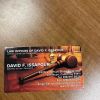Legal Advice for Foreclosure Defense: What You Need to Know
If you’re facing foreclosure, the situation can feel overwhelming and uncertain. You may be wondering if there’s any way out of the financial hardship you’re experiencing or if you’ll lose your home. Fortunately, there are legal strategies that may help you defend against foreclosure and work toward a resolution. In this article, I’ll share key legal advice for foreclosure defense and outline what steps you can take to protect yourself and your property during this difficult time.
Foreclosure is a serious matter, but you don’t have to face it alone. Seeking the right legal advice and assistance is crucial for understanding your rights and exploring the best possible options. Over the years, I’ve worked with many homeowners who were able to successfully fight foreclosure or negotiate a resolution that allowed them to keep their homes. While every situation is unique, there are common legal strategies that can help you navigate the foreclosure process more effectively.
1. Understanding the Foreclosure Process
Before diving into foreclosure defense strategies, it’s important to first understand the foreclosure process itself. Foreclosure typically begins when a borrower falls behind on mortgage payments, and the lender starts legal proceedings to repossess the property. There are two main types of foreclosure in the U.S.: judicial and non-judicial. Judicial foreclosure involves court proceedings, while non-judicial foreclosure occurs outside of court, often based on the terms of the mortgage agreement.
The process usually follows these general steps:
- Missed payments: After several missed payments (usually three to six months), the lender sends notices of default and may begin foreclosure proceedings.
- Pre-foreclosure: During this period, you may have an opportunity to catch up on missed payments or negotiate with the lender before the foreclosure sale occurs.
- Foreclosure sale: If the default isn’t resolved, the property is sold at a public auction.
- Eviction: If the property is sold and you’re unable to reach a resolution, the new owner may file for eviction to remove you from the property.
Understanding this process is essential, as it enables you to recognize where you stand in the timeline and determine what legal defenses you might be able to use to challenge the foreclosure.
2. Legal Strategies for Foreclosure Defense
When defending against foreclosure, there are several legal strategies that could be utilized. Some of the most common defenses include:
- Challenging the lender’s standing: If the lender cannot prove that they are the rightful party to foreclose on the property, this could delay or prevent the foreclosure from proceeding. For example, if the lender failed to properly transfer the mortgage or didn’t comply with legal requirements, their ability to foreclose could be challenged in court.
- Errors in the foreclosure process: Sometimes the foreclosure process itself is flawed. This might include failure to follow proper procedures, incorrect paperwork, or the lender not providing the required notices. If any procedural errors occur, you might have grounds to contest the foreclosure.
- Loan modification or repayment plan: In many cases, lenders are willing to work with homeowners to create a loan modification or repayment plan. This may involve reducing the interest rate, extending the loan term, or offering a temporary suspension of payments. If you can demonstrate that you can make payments on a new plan, this might prevent foreclosure.
- Bankruptcy: Filing for bankruptcy can delay or halt foreclosure proceedings. Chapter 13 bankruptcy, in particular, allows you to reorganize your debt and catch up on missed mortgage payments over time.
- Showing financial hardship: If you can demonstrate that the foreclosure is the result of temporary financial hardship (such as a medical emergency, job loss, or unexpected expenses), you may be able to work with the lender to find a solution that avoids foreclosure.
These legal strategies can help you buy time, challenge the validity of the foreclosure, or ultimately keep your home. Working with an experienced foreclosure lawyer can help you navigate these defenses and choose the right strategy for your specific circumstances.
3. Exploring Alternatives to Foreclosure
In addition to legal defenses, there are also alternatives to foreclosure that may allow you to avoid losing your home. Some of the most common alternatives include:
- Short sale: A short sale occurs when the lender agrees to accept less than the amount owed on the mortgage to avoid foreclosure. While this can negatively impact your credit score, it may allow you to sell the property and avoid foreclosure proceedings.
- Deed in lieu of foreclosure: In this scenario, you voluntarily transfer the ownership of your property back to the lender in exchange for the cancellation of your mortgage debt. This can be a faster and less damaging alternative to foreclosure.
- Loan modification: As mentioned, a loan modification may help you restructure your mortgage, making the payments more affordable and allowing you to stay in the home.
- Forbearance agreement: A forbearance agreement allows you to temporarily stop or reduce payments during a difficult financial period. After the forbearance period ends, you will need to resume payments or negotiate a plan to catch up on missed payments.
Each of these options has its pros and cons, and it’s important to carefully consider which one is the best fit for your financial situation. A foreclosure lawyer can help you explore these alternatives and guide you through the decision-making process.
4. The Importance of Legal Representation in Foreclosure Defense
When facing foreclosure, having legal representation is crucial. A skilled foreclosure attorney can help you understand your rights, evaluate your options, and craft a defense strategy that works best for you. They can also represent you in court, negotiate with the lender, and ensure that all deadlines and legal requirements are met.
Without legal advice, it’s easy to feel overwhelmed and unsure of how to proceed. Many homeowners who attempt to fight foreclosure without an attorney end up making costly mistakes that harm their chances of saving their homes. By hiring a foreclosure lawyer, you can improve your chances of a successful outcome.
5. Finding the Right Foreclosure Defense Attorney
When looking for a foreclosure defense attorney, it’s important to choose someone with experience in this specific area of law. You should look for a lawyer who understands both the legal nuances of foreclosure and the potential solutions that might be available to you. It’s also important to find an attorney who is willing to listen to your concerns and work with you to create a strategy that aligns with your goals.
Many law firms offer free consultations, which can help you understand your options and assess whether a particular attorney is the right fit for your case. Take the time to research different attorneys and ensure you’re comfortable with their approach and expertise.
Conclusion
Foreclosure is a serious matter, but it’s not something you have to face alone. By understanding the foreclosure process, exploring legal defenses, and considering alternatives, you can increase your chances of keeping your home. Seeking legal advice from a qualified foreclosure attorney can make all the difference, providing you with the tools and knowledge you need to navigate this challenging situation. If you’re facing foreclosure, don’t wait—contact an experienced lawyer today to start working on your defense and protect your home.

 dolly hassan
dolly hassan we the people attorney
we the people attorney fulmer law
fulmer law sugar law group
sugar law group david issapour
david issapour silva and silva
silva and silva